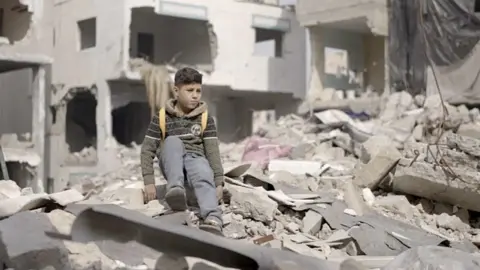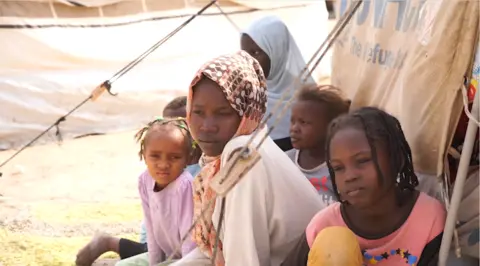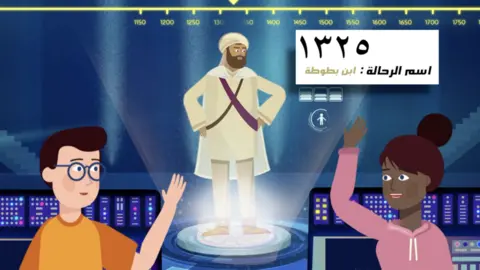
 BBC
BBCTareq, 10, from Gaza, and Safaa, 14, from Sudan live about 2,000km apart. They have never met, but they share a harsh reality – war has stolen their education.
“When I saw my school in ruins, a deep sadness overwhelmed me. I long for it to return to what it once was,” Tareq tells the BBC from Gaza.
“Despite everything, I haven’t stopped learning. I study at home, making sure not to waste a moment so when I do go back to school, I will be ready,” he adds.
In Sudan, Safaa dreams of becoming a heart surgeon. “I’m still holding on to hope,” she says, but she has traumatic memories of the country’s civil war.
“Bodies were scattered everywhere, which deeply moved me and made me want to save lives instead of seeing them being lost.”


Tareq and Safaa are among the 30 million children who, according to the United Nations children’s agency Unicef, are out of school in the Middle East and North Africa. It estimates that more than half – 16.5 million – are in Sudan alone.
In response, the BBC World Service has launched an Arabic edition of its award-winning educational programme Dars – or Lesson.
In the past year in Gaza, “over 600,000 children – that’s all the school-aged children in Gaza – didn’t get education”, says Saleem Oweis, a spokesperson for Unicef.
“We’re seeing a pattern of how conflicts, insecurity and crises are inflicting real harm on children’s education and learning,” he adds.
In Sudan, nearly two years after a civil war erupted between the army and the paramilitary Rapid Support Forces, millions of children are living in refugee camps where education is only available through local initiatives.
In an interview with the BBC, Sudan’s education minister, Ahmed Khalifa, highlights the scale of devastation.
“No state was spared,” he says. “Sudan has approximately 15,000 public schools. Between 60% and 70% of these schools have been completely damaged, losing their foundations, infrastructure and books.
“Even in safer states, schools have suffered damage due to systematic destruction by militias.”


Dars was first launched in 2023 for children in Afghanistan, including girls barred from secondary school, with the United Nations describing it as a “learning lifeline” for children unable to attend classes.
Designed for children between the ages of 11 and 16, Dars Arabic has weekly lessons on a range of subjects including maths, technology, climate and mental health.
It also features the stories of children, such as Tareq and Safaa, who despite war and other obstacles, are still determined to learn.
The first episode aired on Sunday 9 February, on BBC News Arabic TV. New episodes are broadcast weekly on Sundays at 05:30 GMT (07:30 EET), with repeats at 10:05 GMT (12:05 EET) and throughout the week.
The programme is also available on digital platforms, including BBC News Arabic YouTube, as well as lifeline radio services in Gaza and Syria.
Article by:Source:
















